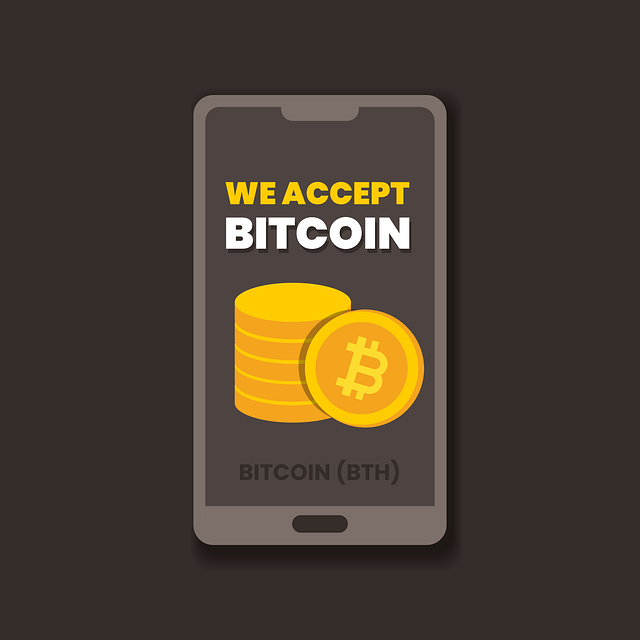The decentralized finance (DeFi) ecosystem faces unique regulatory hurdles due to its lack of central authority and innovative smart contract technology, making traditional frameworks ineffective. These challenges include jurisdictional issues, anonymity concerns, market volatility, and smart contract bugs. Stakeholders must collaborate to develop solutions that balance innovation and consumer protection, such as improved auditing, transparent coding, and international regulation. Effective strategies involve robust risk management, enhanced due diligence, collateralization ratios, and automated risk mitigation. Clear guidelines and oversight are needed to ensure fair practices and build investor trust in the rapidly growing DeFi sector.
In the dynamic landscape of decentralized finance (DeFi), default risks pose significant challenges, navigating a complex web of financial innovations. As DeFi expands, regulatory gaps create an unregulated territory where smart contracts and anonymity collide, leading to investor vulnerability. This article delves into the intricacies of understanding DeFi’s default landscape, exploring regulatory challenges, the impact of market volatility, and potential solutions. By examining these factors, we uncover strategies to address default risks and shape the future of DeFi with enhanced investor safety.
- Understanding DeFi's Default Landscape: A Complex Web of Financial Innovations
- Regulatory Gaps: The Unregulated Territory of Decentralized Finance
- Challenges Posed by Anonymity and Lack of Consumer Protection
- Market Volatility and Smart Contract Bugs: A Recipe for Disaster
- Addressing Default Risks: Potential Solutions from Regulators and Developers
- The Future of DeFi Defaults: Embracing Change and Ensuring Investor Safety
Understanding DeFi's Default Landscape: A Complex Web of Financial Innovations

The landscape of decentralized finance (DeFi) is an intricate web where innovation meets regulatory challenges. Default, a concept traditionally associated with centralized banking, takes on a complex form in DeFi. As the industry rapidly evolves, understanding default mechanisms and their implications is crucial. Unlike traditional financial systems, DeFi’s decentralized nature presents unique hurdles when addressing defaults.
Regulatory challenges in DeFi are multifaceted. Smart contracts, the backbone of DeFi protocols, introduce transparency but also complexity in managing defaults. The lack of centralized authority makes it difficult to implement conventional risk management strategies. As a result, developers and stakeholders must navigate an evolving regulatory environment, balancing innovation with consumer protection. This dynamic landscape requires ongoing dialogue between industry leaders, regulators, and legal experts to establish robust frameworks that address default scenarios while fostering DeFi’s growth and stability.
Regulatory Gaps: The Unregulated Territory of Decentralized Finance

The decentralized finance (DeFi) landscape, while offering unprecedented access and control over financial services to users, operates largely outside traditional regulatory frameworks. This creates a significant challenge known as Regulatory Gaps in DeFi, where legal and oversight structures struggle to keep pace with technological advancements. The lack of clear regulations around DeFi platforms and activities presents risks for investors, developers, and regulators alike. As the DeFi space continues to evolve rapidly, it becomes increasingly important to address these regulatory challenges in DeFi to ensure consumer protection, market stability, and fair competition.
One of the primary issues is the decentralized nature of these financial services, which can span across jurisdictions, making traditional regulatory approaches difficult to apply. Additionally, the anonymous and permissionless aspects of blockchain technology make it challenging for regulators to monitor and enforce existing laws effectively. The absence of a central authority or intermediary complicates the identification and attribution of responsibilities, leading to a complex web of legal uncertainties.
Challenges Posed by Anonymity and Lack of Consumer Protection

Anonymity, a double-edged sword, presents significant challenges in the decentralized finance (DeFi) space. While it offers users privacy and protection from potential retaliation, it also enables fraudulent activities and hampers consumer protection efforts. In the absence of personal information, identifying and holding accountable those responsible for malicious actions like market manipulation or fraud becomes an arduous task. This anonymity can lead to a lack of trust, hindering the widespread adoption of DeFi platforms.
Regulatory challenges in DeFi further exacerbate these issues. Traditional financial regulations, designed with centralized systems in mind, struggle to adapt to the decentralized nature of blockchain technology. The absence of clear regulatory frameworks creates a vacuum that allows unethical practices to flourish unchecked. As DeFi continues to evolve, addressing these anonymity-related and regulatory hurdles is crucial to ensuring a safe and robust digital financial ecosystem.
Market Volatility and Smart Contract Bugs: A Recipe for Disaster

In the dynamic landscape of decentralized finance (DeFi), market volatility and smart contract bugs represent a potent combination, posing significant regulatory challenges. DeFi platforms, despite their promise of enhanced financial accessibility and transparency, are susceptible to sudden price swings driven by investor sentiment and speculative activities. When coupled with complex smart contracts, even minor bugs can have catastrophic consequences. A simple programming error or oversight might lead to unintended outcomes, such as liquidity crises, unfair distribution of funds, or even the complete collapse of a protocol.
Regulatory bodies are navigating uncharted waters in addressing these issues due to the decentralized nature of DeFi. Traditional financial regulations often struggle to adapt to the rapid innovations and global reach of crypto markets. Smart contract bugs, being both technical and legal gray areas, add an extra layer of complexity. Ensuring investor protection while fostering innovation requires a delicate balance. Effective solutions involve enhancing smart contract auditing standards, promoting transparent coding practices, and developing robust on-chain risk management tools. Moreover, international collaboration among regulators is crucial to establishing uniform guidelines, mitigating risks, and ensuring the stability of DeFi ecosystems amid market volatility.
Addressing Default Risks: Potential Solutions from Regulators and Developers

Addressing default risks is a critical aspect of ensuring stability and sustainability in the Decentralized Finance (DeFi) space, where regulatory challenges are abundant. Regulators and developers alike play pivotal roles in mitigating potential pitfalls associated with defaults. One key approach involves implementing robust risk management frameworks that can anticipate and manage counterparty risks effectively. This includes enhanced due diligence processes, transparent reporting mechanisms, and sophisticated risk assessment tools tailored for DeFi platforms.
Developers can contribute by designing smart contracts with built-in safety nets, such as collateralization ratios, liquidation protocols, and automated risk-mitigation strategies. Additionally, regulatory interventions like licensing frameworks and oversight bodies can establish minimum standards, encouraging best practices among developers while fostering investor confidence in the DeFi ecosystem.
The Future of DeFi Defaults: Embracing Change and Ensuring Investor Safety

The future of defaults in Decentralized Finance (DeFi) presents a complex landscape as this emerging sector navigates uncharted regulatory waters. With the rapid growth of DeFi, regulatory challenges have become increasingly prominent, especially regarding default management and investor protection. As more traditional financial elements are integrated into the decentralized realm, there is a growing need for clear guidelines and oversight to ensure fair practices.
One key aspect is to develop robust mechanisms that handle defaults responsibly while maintaining the transparency and security of blockchain technology. This may involve innovative solutions such as automated debt collection protocols or enhanced collateral management systems. By embracing change and adopting best practices, DeFi platforms can foster trust among investors, even in the face of potential default scenarios.
The landscape of decentralized finance (DeFi) defaults is a complex web that reveals the urgent need for regulatory interventions. As DeFi continues to evolve, addressing the challenges posed by anonymity, market volatility, and smart contract bugs becomes increasingly critical. Filling the regulatory gaps is essential to protect consumers and ensure investor safety. By adopting robust measures, developers can mitigate default risks, fostering a more secure and stable future for DeFi. Understanding these dynamics is key to navigating this innovative yet unregulated territory.
